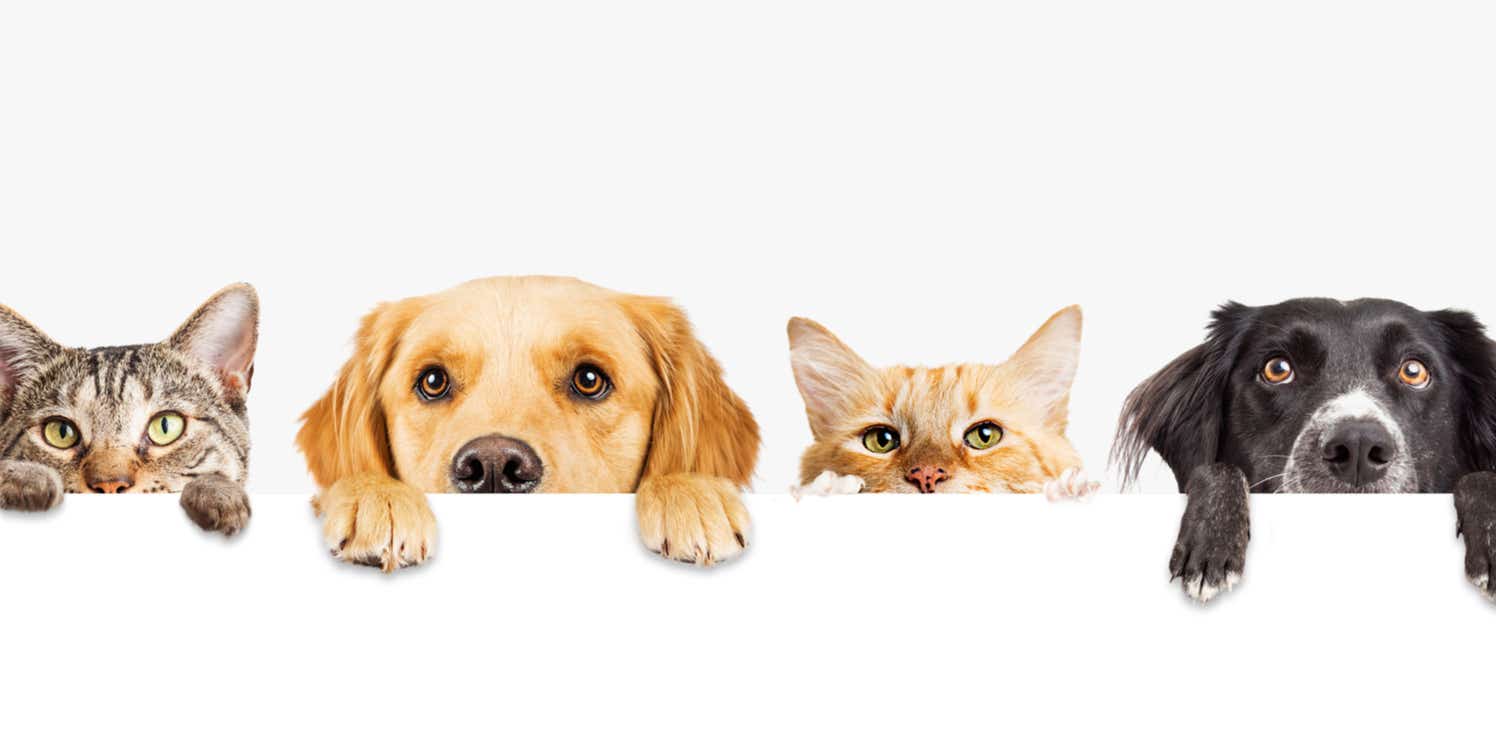- >
- Pet Insurance>
- Guides>
- How much does a pet cost?
How much does a pet cost?
Getting a pet is an emotional decision, but it’s important not to forget about the cost. Here are some key costs to think about so that you can make sure looking after your pet properly won’t be too expensive.

Buying a pet
The cost of buying a pet can vary wildly, from a £5 goldfish to a £5,000 cockatoo and everything in between. Do your research and find the best pet to suit your lifestyle and budget. Use our handy pet insurance guides to find all the information you need.
Most prospective UK pet owners have probably narrowed it down to two options:
Dogs
Dogs can range from £50 up into the thousands and more for rare pedigree puppies.
If you decided to go for the UK’s most common dog breed, the Labrador Retriever, a puppy would likely cost around £2,500.
Cats
For those on the other side of the divide, most cats cost between £50 and £150, but rarer breeds can reach well into the thousands.
Adoption
If these figures are breaking your budget, don’t despair. Rehoming fees at Battersea Dogs & Cats Home start at £85 for cats and £155 for dogs.
For dogs this cost includes microchipping, initial vaccinations, flea and worming treatment, neutering, a collar, identification tag and lead, a starter pack of food, advice and special offers, and four weeks’ free Petplan insurance.
For cats the fee will get you a full vet and behaviour assessment, microchipping, flea and worm treatment, neutering, initial vaccinations, a starter pack of food and four weeks of free Petplan insurance.
Research your local pet adoption service to find out who they have available and what their adoption fees include.
Day-to-day costs
Regular costs can vary depending on the size of your pet and level of pet insurance cover you buy.
Most dogs will cost owners at least £21,000 over their lifetime, with cats a cheaper option at around £12,000.
However, this cost can be much higher if your pet suffers from a chronic condition which requires regular trips to the vet and ongoing medication. Costs can also spiral if your pet suffers an accident, or injures a third party and you do not have sufficient pet insurance cover.
Pet insurance
Other than food, healthcare is likely to be your biggest regular pet cost, so the right pet insurance can make a huge difference to your bank balance.
Your policy can cover everything from accidents to acupuncture, so make sure to compare pet insurance to find the best deal.
Pet insurance is not a legal requirement like car insurance, but it can still be a crucial failsafe if something goes wrong.
There are a variety of different types of cover available:
Accident only policies: This is the most basic policy on the market. Your pet will be covered for essential treatment needed as a result of an accidental injury. It will likely offer a lower maximum claim limit than other policies, but the premiums will be lower.
Time-limited policies: This policy type covers you for a set period of time (such as 12 months) for a specific condition. After this period, you will have to pay for any ongoing treatment yourself.
Maximum benefit policies: This covers a condition up to a set amount, such as £5,000. Once you reach this limit your insurer will approve further payouts for the same condition.
Lifetime policies: You will be able to claim up to a set amount, for example £10,000, for any condition every year of your pet's life. This is usually the most expensive option, but offers the best cover.
Whether your new addition is a dog, cat, rabbit, horse, bird or something more exotic, it is still crucial to do your research and find the best insurance for your budget, your pet and your lifestyle.
If you need more information, our pet insurance guides can tell you everything you need to know about how to ensure looking after your new friend won’t break the bank.
Extra costs
Pet passports
While a pet passport application costs £60, your pet will need to be vaccinated and microchipped so the costs could be more. Find out everything you need to know with our dedicated guide to taking pets abroad.
Be aware that the rules around pet passports and the associated costs are likely to change from 1 January 2021 as the UK leaves the EU. Go to GOV.UK to find out more.
Putting your pet to sleep
When the time comes, it will cost between £80 and £200 to put your pet to sleep, depending on their size.
Pet euthanasia may be covered by your pet insurance, so check your policy documents carefully.
Pet cremation
Cremating your pet will likely set you back between £160 and £200.
Protect your pet with the best possible cover by comparing pet insurance deals. Find the right policy for your furry friend at the right price!
